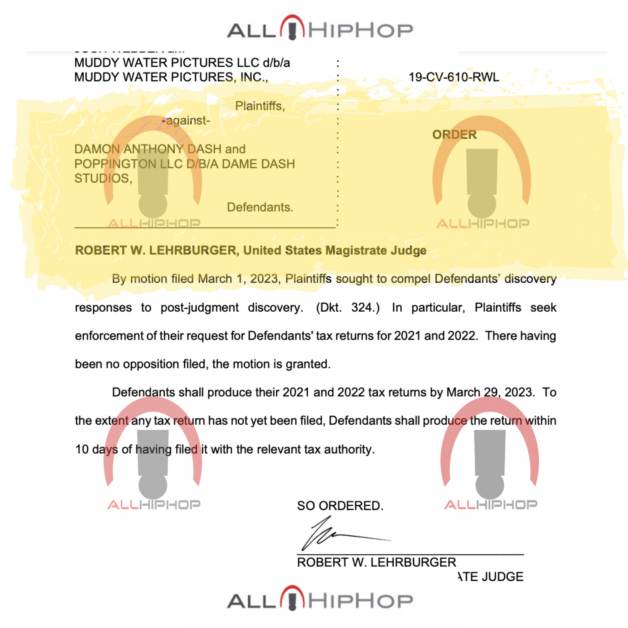Damon Dash is facing yet another legal battle, this time involving his tax returns for 2021 and 2022.
Filmmaker Josh Webber, who has already won a lawsuit against Dash over the movie “Dear Frank,” has filed a motion for him to turn over his tax records as a request for sanctions against the Roc-A-Fella Records co-founder.
According to documents obtained by AllHipHop.com, a judge has ordered Damon Dash to turn over his financial records Webber, which could reveal the extent of his assets and sources of income.
The documents could also shed light on Dash’s business dealings and reveal potential conflicts of interest.

In the original lawsuit, filed in 2019, Webber and Muddy Water Pictures claimed they had hired Dash to co-direct a movie called “Dear Frank” in 2016 but fired him two years later for allegedly being high on set.
But Dash was accused of trying to promote himself as a producer for the “Dear Frank” motion picture after he was removed from the project. They claimed that Dash even changed the film’s title to “The List.”
In March of 2022, Webber and Muddy Water Pictures won the case, and the jury awarded Muddy Water Pictures $30,000 for copyright infringement and $125,000 in punitive damages.
Webber won $400,000 in compensatory damages for defamation and $250,000 in punitive damages. Dash was ordered to pay a total of $805,000 to the plaintiffs.
Despite the legal defeat, Dash posted about the case on his verified Instagram page, saying, “You have to lose some battles to win a war… stay tuned #fatliars #youllneverbeme. Don’t ever say you Directed MY movie.”
Dash failed to respond to debtor interrogatory discovery in December 2022, and in January 2023, he did not produce the requested tax returns. He also missed another date in February 2023.
Outstanding judgments over $800,000 remain due in the original lawsuit.
